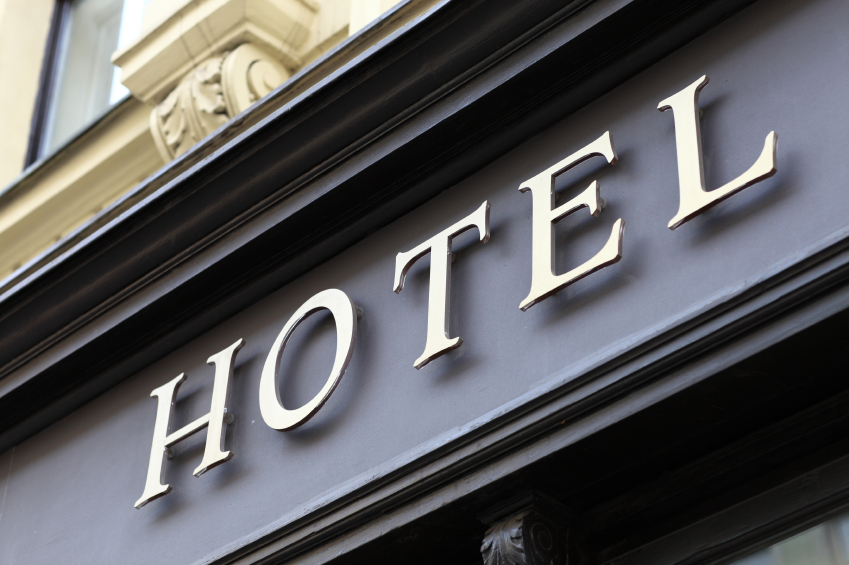Hotel Security - Keys to Safeguarding our Guests

By Steve Bobb, Executive Officer, Oregon Surveillance Network
Anyone in the private security field will tell you the first thing you need is a solid plan. Few people realize, however, that the security plan should ideally begin before ground is broken or the first concrete footing is poured.
Architects and designers are always creating buildings with elaborate features and unique materials, accentuating a room or building with ostentatious décor and distinctive style. A hotel’s design and layout isn’t always conducive to full protection from a security standpoint. For instance, a cascading water wall in the lobby may be a stunning amenity, but would it also be an ideal location to conceal a weapon or for a person to hide behind. Ceiling chandeliers, wall fixtures, bulky sculptures and non-supportive pillars can obstruct sight lines and inhibit access and evacuation routes.
Any new hotel, like with any construction project will take into account its most functional components, comfort, adequate spacing for reception, valet, gift shop and retail, conference rooms, kitchens and restaurants, concierge and most important, back-of-house and storage. Plus all the electronics, fiber optics, plumbing and infrastructure for communication.
But shouldn’t hotel security also be considered an integral part of the mix? Security stations, a medical or first aid room, dispatch desk and central control; even an area for security vehicles all have to be part of the big picture.
We’ve been fortunate enough here at Spirit Mountain to include security safeguards and concerns at the inception of new construction projects. And the result has not only saved costs, but ensured the ultimate safety of our guests and employees. Let’s face it; most hotels already exist, so being able to integrate a security plan in the blueprints is not an option for everyone.
So what do you have to work with? Or more importantly, what are your challenges?
A poorly laid out floor plan could potentially be one of the biggest obstacles a hotel faces. Cluttered and cramped surroundings, sharp obscured corners, serpentine hallways and jutting walls; poor lighting and suspended ceiling décor can be detrimental to providing adequate security.
It is vital that both the security department and the guests be able to get from one location to the other within the property. For instance, the pleasant amenities that are aesthetically placed to ensure a positive guest experience, such as the types of trees and shrubs used for landscaping will determine the threat level to the ground floor rooms. Brush and trees should not completely obscure room windows and exit points.
One of a security team’s greatest, but most underutilized resources is the hotel staff. Having keen, vigilant and aware employees, trained in identifying people behaving suspiciously or seeing potentially nefarious activities is crucial to a successful security program.
Because the security department cannot possibly be in all places at all times, it is extremely important that hotel staff be trained to watch for certain behaviors and constantly scan their surroundings. Just like with any business, an employee that initially comes in contact with a guest should be able to identify any potential concerns. This would include valet and hotel reception personnel, but also include bellmen, restaurant servers and housekeeping.
Most of the time there will be normal activity. Many hotel guests are usually part of a group or on property for a conference and are just looking for a good time. It’s important not to overreact. However, that small percentage that appears volatile or troublesome can jeopardize innocent others and potentially escalate a good time into a dangerous situation. The entire staff should be looking for signs or indicators that could lead to a perilous incident.
Having a security station manned with a uniformed officer can be an effective deterrent as well; however, it can also send a message that there are potential security and safety issues that require a strong-armed and forceful presence. A dominant, visible security presence can actually have a reverse affect, by raising questionable safety concerns and heightening anxiety among guests and staff. Security officers should be uniformed and be seen by the guests, but in a low-profile, amicable and approachable manner, so they can feel comfortable reporting an incident or potential security risk.
There should also be non- uniformed officers that blend in with the guests and are able to react quickly to any incident, whether it is a potential threat or medical in nature. As mentioned before, training and practice is essential for all hotel and security staff. Even having local law enforcement and fire departments come in and conduct situational events can be beneficial in reinforcing confidence and readiness while alleviating stress and confusion. Knowing what the proper course of action is in certain situations is crucial to responding professionally and appropriately. Waiting for the real event to happen poses an immediate risk for the property, its owners and even the investors.
Closed- circuit TV along with a quality recording system are absolutely essential to protecting property assets. Simply put, CCTV is your 24/7 witness for any incidents. Proper placement, lighting and camera angles are critical to a quality surveillance system. What is even more necessary is a highly trained staff that can spot and identify potential threats and high-risk problem areas. Countless lawsuits filed across the country are related to guest mishaps; folks who claim to have slipped or fallen, tripped going down stairs or been injured on escalators. Payroll, supplies, insurance and other internal personnel expenses typically hinder many companies from employing adequate staff and security in high risk areas all the time. A good, reliable surveillance system is a great alternative and invaluable tool to protect property assets and costly litigation claims.
Limiting guest access through quality control is another vital component of security. Allowing staff access in areas that are necessary for them to do their duties, while prohibiting unofficial persons from wandering through decreases public safety hazards and ensures containment.
Consequently, staff members that are allowed in all or most areas can be effectively monitored and documented by an access control system within a 24-hour period or in some cases, longer.
Emergency drills and exit strategies also play an integral role in security. Most hotels have five or more floors, which can create a nightmarish scenario in the event of a fire or hostage situation. Guests and staff look to security to provide calmness, reassurance and safety during these types of emergencies. Even the best trained staff can panic, lose their composure or become disoriented in a life-threatening situation. It’s up to security to keep cool, maintain their professionalism and know their roles in evacuation and medical techniques. Directing traffic flow, securing and locking down evacuated areas and assisting with external fire, first aid and police agencies are paramount in preventing a situation from becoming a catastrophe. One other thing to keep in mind when dealing with local emergency responders. Remember, no community police or fire department is as familiar with your hotel as your security staff. These agencies are going to rely on hotel security to get where they need to go, do their jobs quickly and effectively and save lives.
Sometimes an emergency situation or incident will attract attention from local or even national media. Have a plan in place to control access and statements to the press. Know who is officially authorized to speak with the media on behalf of the property. Be accommodating and courteous, but firm in controlling media and vehicle access. Take the time to explain why an area may be cordoned off or restricted, but refrain from commenting on anything else other than directional or safety instructions. Never say anything “off the record” and never leave media, especially videographers or cameramen unattended.
Always try to be helpful and cooperative, especially in finding a spokesman or information reporters may be looking for. Nothing gets a reporter more riled up than dismissing them with a callous, condescending response such as “I don’t have time for you” or “find someone else to bother.” Tell them you’ll help them get answers to their questions and then follow through.
As you can see hotel security goes well beyond just protecting the property assets. Having a dependable, informed, alert and properly trained staff utilizing sound judgment that remains calm in a crisis is the foundation of good hotel security. But many other aforementioned tools and resources play a major role as well, including relying on employees and guests to assist in preventing many threats hotels face today.
Steve Bobb has been in Indian Gaming since 1995 his sixteen year career has been with the Security and Surveillance Departments. He has experience in starting up operations as well as very large additions and remodels. Over the years Mr. Bobb has capitalizes on many training opportunities which has prepared him to deal with the difficult challenges that face the gaming industry today. Mr. Bobb is also the current Executive Office of the Oregon Surveillance Network. This network of Security and Surveillance professionals is made up of approximately 650 subscribers around the world. Mr. Bobb can be contacted at 503-879-3700 or steve.bobb@spiritmtn.com
Republished from the Hotel Business Review with permission from www.HotelExecutive.com






